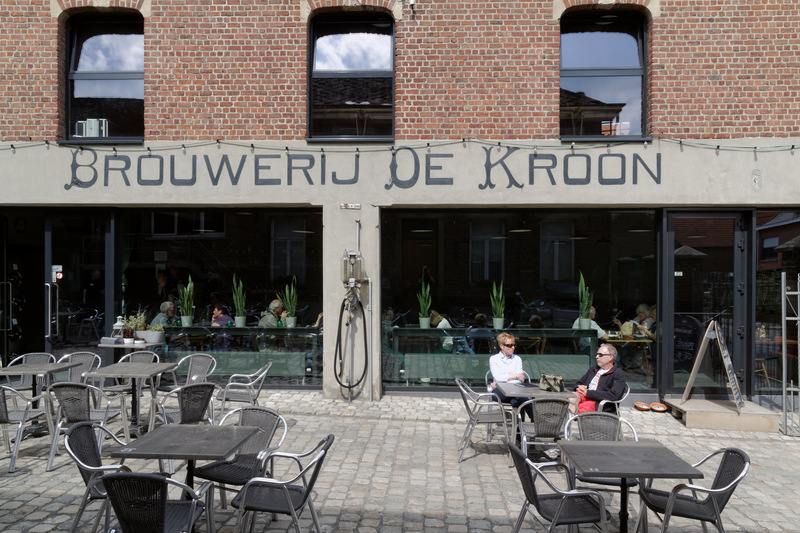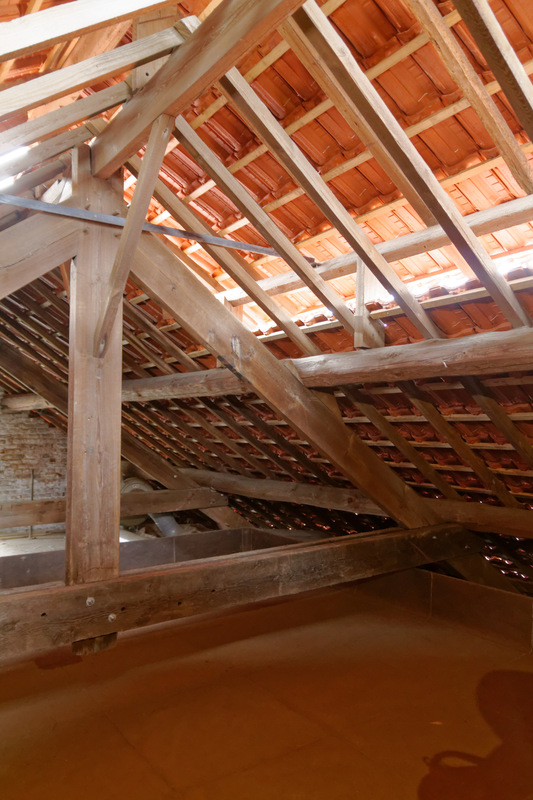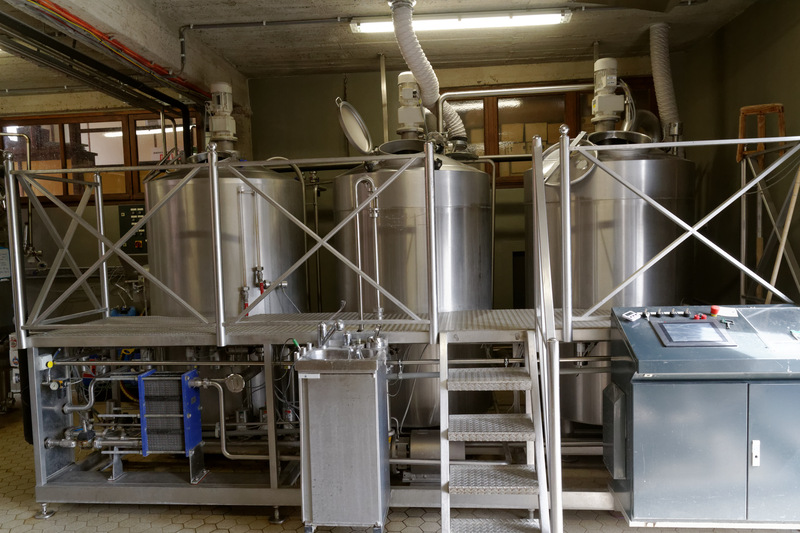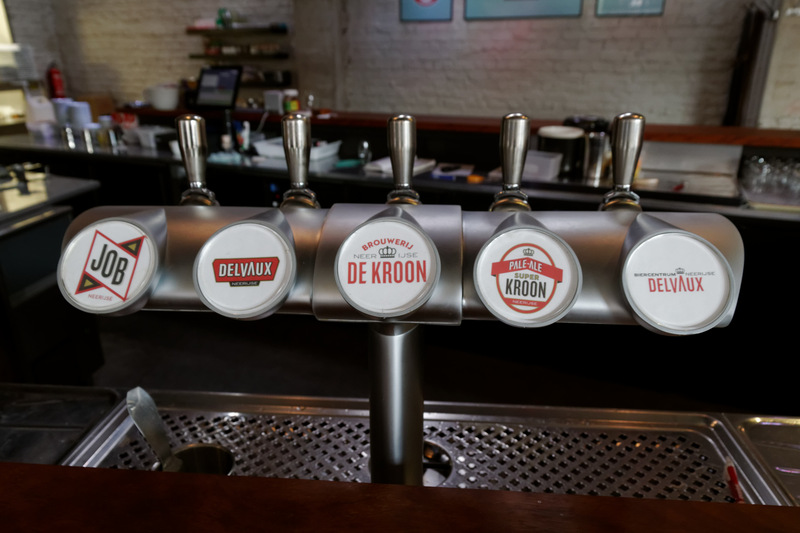Brouwerij de Kroon

The cafe |
When the Delvauxes decided to start their own brewery they purchased the historic de Kroon brewery in Neerijse, just outside of Leuven. They installed a completely new brewkit in the brewery, but it has a long history, and the previous incarnation was built just after World War I. Here, too, the Germans had taken all the copper, and after the war there was a shortage of everything. Therefore the new equipment was not in copper, but, as Delvaux put it, "of whatever metal could be found." (This is part 5 of the Scandinavian beer bloggers' tour.)
One interesting aspect of the brewery was that the wort was boiled in a coal boiler. "That has to have affected the flavour," I asked Delvaux. "Yes, yes, indeed!" He beamed. "Yes, very much so. The wort must have caramelized, and perhaps burnt a little." Hmmmm. "So what style of beer did they brew," I ask. Delvaux grinned again. "In a moment you will see."

Coal-fired kettles |
He led the way across the room, then up a narrow ladder, and into another room up under the roof of the brewery. I took one glance into the room, then drew my breath, and said "ahhh, I see." He laughed, "indeed, indeed." The room was filled by a big coolship, so obviously de Kroon must have made lambic. However, Delvaux said, it wasn't lambic in quite the way it's made today, because it was only 1-3% alcohol. Also, in addition to "infecting it from the air", as he put it, they added cultured yeast. Another unusual part was that they used open fermenters.
De Kroon brewed their last batch in 1983, but activity must have been fairly limited at the end because the penultimate batch was made in 1978. After then, the brewery was abandoned. The equipment is still in pretty good shape, so someone must have taken care of the brewery. Most likely this was the former owner, because he still lived on the site when the brewery was sold. In fact, one of the conditions of the sale was that he must be allowed to stay. Which is quite convenient, says Delvaux, because he knows brewing, and so helps out in the new brewery from time to time.

Coolship with open ceiling |
So what styles of beer did they brew at de Kroon? As I understood it, one style was called Leuvenbier, and is now completely extinct. Another style was called peeterman, and de Kroon's interpretation of this was called Super-Kroon. It's an amber wheat beer, where the amber colour comes from the beer being boiled for about four hours. One assumes the use of coal fire directly onto the kettle will have contributed a bit, too. The style was associated with the city of Leuven, and was named for its patron saint St. Pieters.
Delvaux then led us to the new brewery, a small, modern stainless steel affair. Here several beers are in progress. One of the beers they make at the new de Kroon is a recreation of the old Super-Kroon. They've reused the old recipes, but adapted them to the new equipment. For example, they now add three different yeasts, to reproduce the old mixed fermentation, but don't add bacteria from the air. The previous owner has tasted the beers, and helped them improve the accuracy of the recreation by comparison with his memories of the old Super-Kroon.

Mashtun and boiler, with computer control panel |
I tried the Super-Kroon, and it was indeed a clear amber, with a papery wheaty spicy flavour. From what I understand, peeterman beers should be sweetish, whereas this one was dryish and faintly acidic. The acid makes sense given that they used a coolship. It was noticeably different from other Belgian wheat beers, but I can't say it had that much character. Whether that's because of this particular beer, the beer style, or because my tasting was kind of rushed I cannot really say.
Another of their new beers is the eponymous Delvaux, a strong blond ale. "It was difficult to develop another blond ale after Karmeliet Tripel and Omer," Delvaux says, implying there are only so many ways to do it. "We put the accent on the fruit," he says, which from his scientific bibliography appears to be one of his specialities. Here my memory and my notes both fail me, a result of trying to eat, take pictures, taste the beer, interrogate professor Delvaux, and make notes at the same time.

de Kroon lineup |
And then, we finished up lunch, packed away our notebooks and cameras, said goodbye to our host, and piled into the minibus yet again. The tour was far from over.
Side note: If anyone wonders why I'm not writing about the Norwegian traditional brewing trip yet the answer is that I'm waiting for some last pieces of the puzzle. Also, I had more Belgian material, so I'm publishing that in the meantime. It's coming, but not just yet.
Similar posts
Professor Delvaux
Arriving at the de Kroon Brewery we're met by a smiling, kindly man in his forties
Read | 2014-05-19 21:08
Alstadberger
Driving hurriedly on from Storli Gard, we arrived at the island of Tautra outside Trondheim late at night
Read | 2014-09-03 19:59
Comments
No comments.